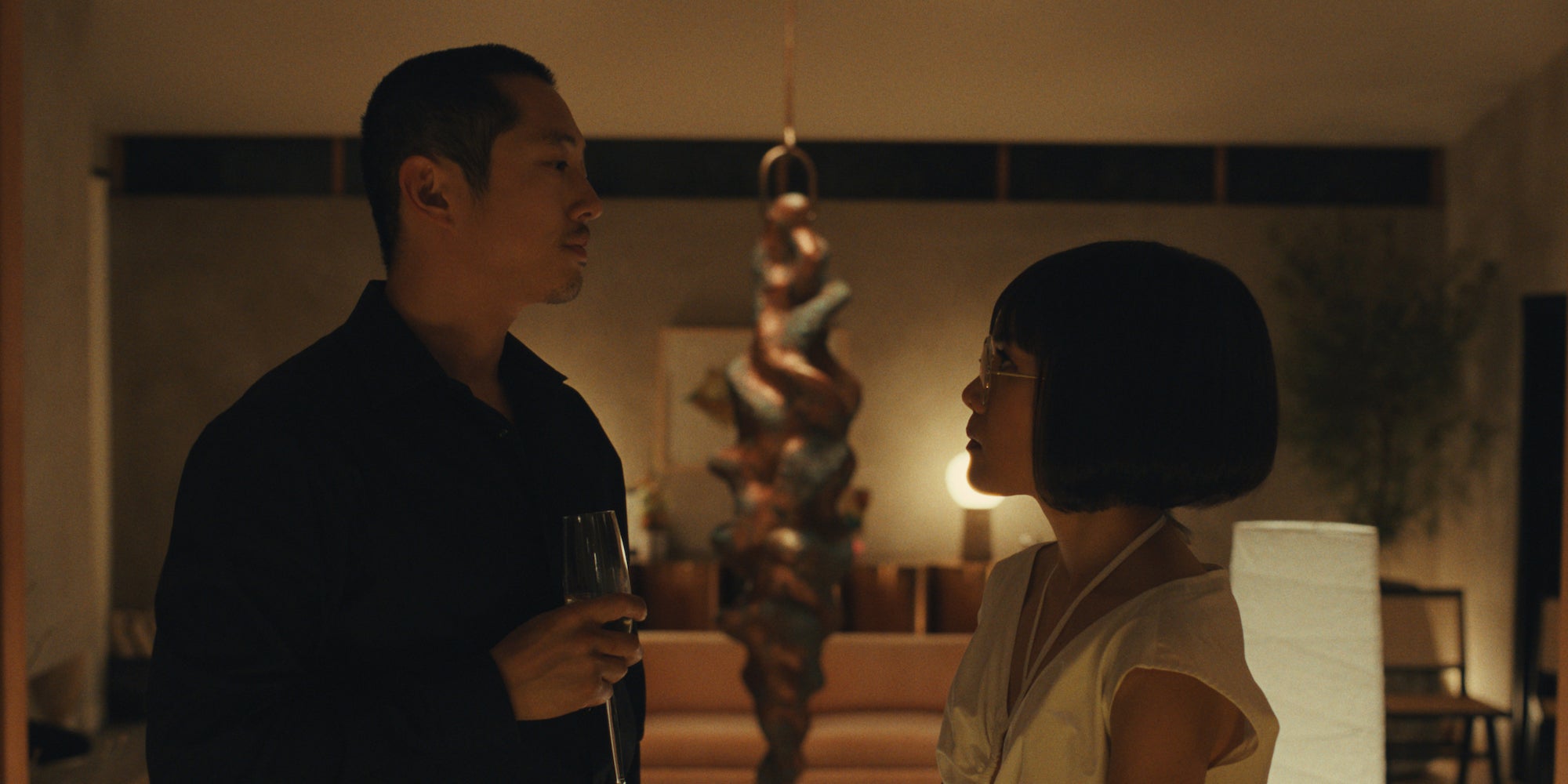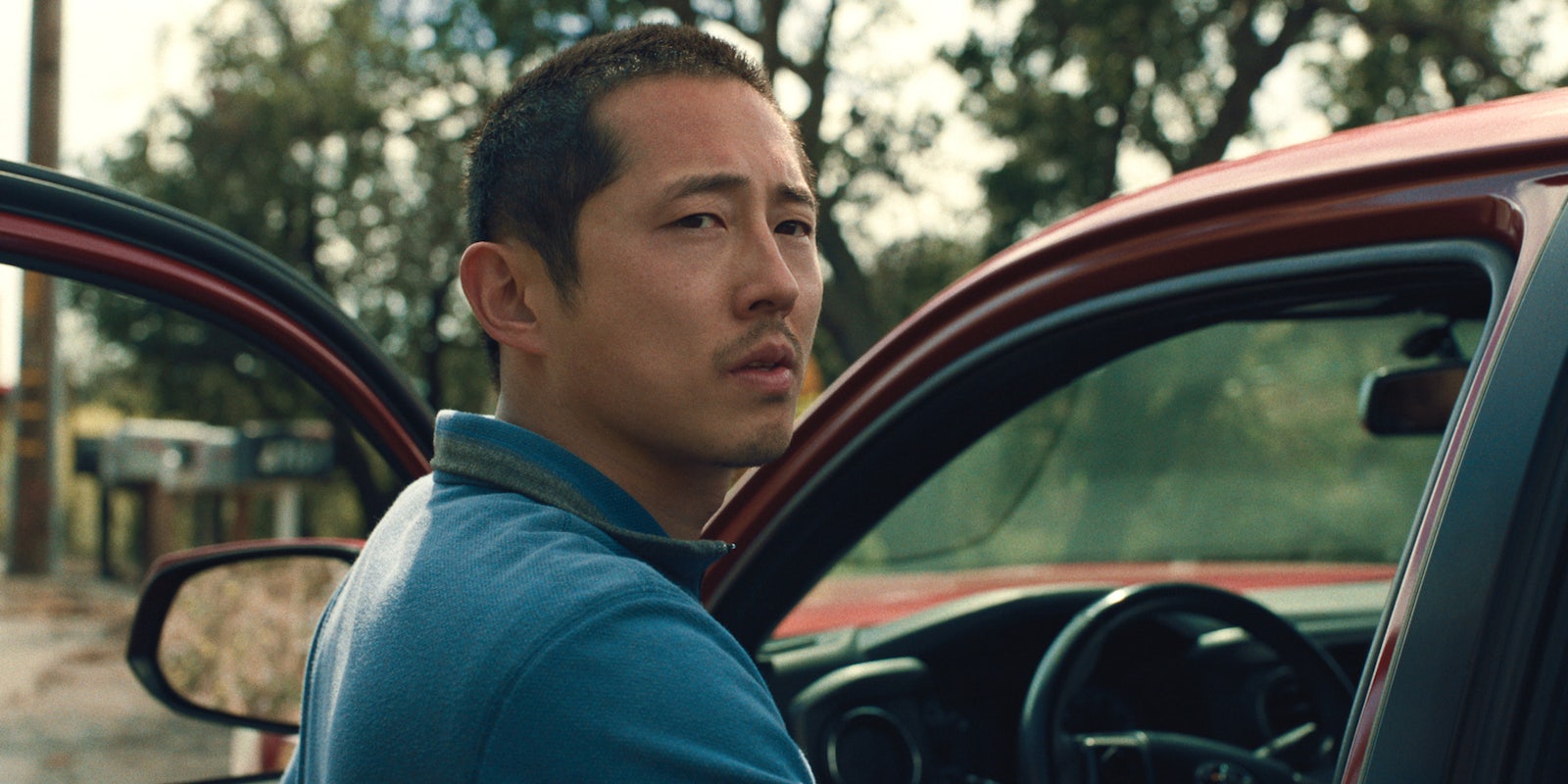The setup of A24’s new series Beef, now streaming on Netflix, is simple yet effective: two people seek revenge on each other following a road rage incident. The revenge presents itself in many forms, from pranks (peeing on the floor of one person’s house, vandalizing a car) to infiltrating each other’s personal and professional lives.
At a certain point in the story, none of the actions taken against the other person are about the road rage incident anymore; they never really were about that in the first place. Instead, this nuanced, deeply layered story is all about rage. The rage we feel at ourselves, the rage we feel at the world around us, the rage we feel at the choices we’ve made and those made for us. It’s a show that delightfully revels in its chaos.
This review contains light spoilers for Beef.
Creator: Lee Sung Jin
Streaming: Netflix
‘Beef’ follows two people who get involved in each other’s lives after a road rage incident. The series is both funny and hard to watch, taking us on a winding adventure of self-discovery and rage.
Amy Lau (Ali Wong) and Danny Cho (Steven Yeun) are the two characters at the center of Beef, and their meeting comes only a couple of minutes into episode one. Danny is backing out of a parking space at a store at the same time Amy is driving behind him. She honks and he yells, “what? what?” impatiently. She drives forward a little before flipping him off, which sets off a chase. The original incident was not serious, and no one was hurt. Yet each person is intent on besting the other on the road. They eventually stop—but not before Danny memorizes Amy’s license plate number. Episode one feels like a short story, and it could have ended there. (Or turned silly, like SNL‘s recent skit with Quinta Brunson called “Traffic Altercation”.) But Beef takes a simple act of road rage—familiar to a lot of drivers—to the extreme. It’s a series that’s clearly designed to make viewers squirm, in a good way.
At the premiere of Beef at the SXSW film and TV festival in Austin, creator Lee Sung Jin told the audience that the idea for the series came to him from a real road rage incident he was involved in with a white SUV—the same kind of car Amy drives. Although that incident did not follow the dramatic events of the series, it gave him an idea for a story that ultimately looks at our assumptions of people who we don’t actually know.
The genius of that first meeting between Amy and Danny is that they never see the other person. When Danny seeks revenge on Amy, he assumes the person in the luxury SUV is a man. And he calls the house she lives in with her family a “stupid yuppie-ass house.” Meanwhile, Danny is a contractor who is struggling with work and his personal life, and he lives in a drab apartment complex with his brother. He sees her car and house and life and is angry at her for having more than him.

Beef works well, partially due to the simmering chemistry between Wong and Yeun. Wong, who rose to stardom after her 2016 Netflix comedy special Baby Cobra, is able to express anger or annoyance with a quick facial expression—you can feel her emotions coming off the screen. Yeun, who starred in Nope and Minari, is able to fully show off his acting range with this material, flawlessly hitting comedic and dramatic tones in each episode. As Amy and Danny, they feed off one another. A win for one person is a loss for another, and they’re continuously trying to even the score.
In the middle of the series, Danny tells Amy, “I just want to know if I’ve got to get where you are.” The heart-wrenching line implies that if he somehow gets to where she is, personally and professionally, he’ll be happier. Amy is successful in her career, lives in a nice house, and has a family. From an outsider’s perspective, she’s made it. But she’s not any happier than Danny—despite having more money than him. They’re both struggling with adulthood and figuring out how to be content with their lives.
The sentiment in Beef is parallel to conversations I see and hear all over the internet about people struggling through life. Young people are rejecting hustle culture and achieving certain goals by the age of 30; others are leaning into self-care. Everyone is complaining about the rising cost of living. There’s still pressure to achieve an idealized adult life in whatever form that means to you (owning a house, being in a loving relationship, raising kids, having a fulfilling career, having time for hobbies), and then more pressure to maintain that lifestyle. The show’s two protagonists reject a normal adult life; they seek more. All while the characters around them try to push them to act differently.
Beef is the perfect TV show for right now because it taps into the collective rage and unhappiness that’s been bubbling below the surface in society over the last few years. It’s a show that doesn’t shy away from disturbing scenes—and there are a few—or uncomfortable dialogue. The story doesn’t go where you think it will, and the surprises are earned. By the finale, you feel like you went on a long and winding adventure with Amy and Danny, two strangers who are more similar than they want to admit.



